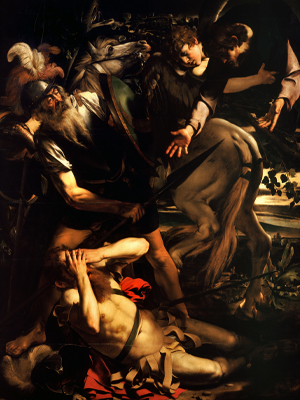Conversion of St. Paul the Apostle

Scripture:
Acts 22:3-16 or 9:1-22
Mark 16:15-18
Reflection:
A book entitled, “Going, Going, Gone: The Dynamics of Disaffiliation in Young Catholics,” is based on a comprehensive study done by the Center for Applied Research in the Apostolate; the authors (McCarty and Vitek) state that a primary reason many young people have drifted from the practice of their Catholic faith is that they feel judged.
Today’s feast might offer us a sort of strategic plan to respond. Our first reading is the second of three conversion accounts in the life of the apostle, Paul, as narrated in the Acts of the Apostles (chapters 9, 22, 26). Each time the circle of Paul’s listeners gets larger, more dramatic. But it’s good to see all of this in a wider context. Early on, Saul was a good Jew, a committed rabbi, intense and zealous. He was so confident in his faith that he was willing to die for it; unfortunately, he was also willing to kill for it. Remember the martyrdom of St. Stephen, when the perpetrators placed their cloaks at the feet of Saul/Paul, and he “concurred” in the act? (Acts 8:1)) The trouble with certitude is that it can be not only delusional but dangerous. We know of misguided religious fervor today as well.
We learn much from Paul when he speaks of his woundedness, as a thorn in his flesh (2 Corinthians 12), or when he confesses his sin, something that he cannot control (Romans 7), or when we hear of the conflict with Barnabas and Peter in Acts 15 (“so sharp was their disagreement that they separated”). Maybe that’s the real conversion. Paul is healed by the community in Damascus; the violence and hatred are eclipsed by acceptance and care, and he is transformed.
The next time I feel wronged or hurt or ignored by another, I pray I can suspend my often verbal “scorched earth” policy, and transform the situation by loving another into more abundant life.
Fr. Jack Conley, CP, is the local superior of St. Vincent Strambi Community in Chicago, Illinois.
